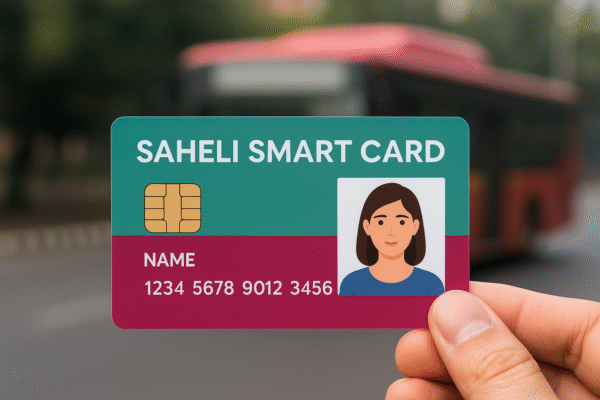Delhi Unveils Saheli Smart Card to Empower Women and Transgender Travelers with Free Bus Rides
In a bold step toward inclusive urban mobility, the Delhi government has rolled out the Saheli Smart Card, offering free bus travel across Delhi Transport Corporation (DTC) and Cluster buses to women and transgender individuals aged 12 and above. This initiative not only modernizes public transport but also aims to enhance safety, accessibility, and affordability for marginalized commuters in the capital city.
The move positions Delhi as a pioneering Indian metropolis in promoting gender-sensitive and socially inclusive infrastructure, directly impacting daily mobility for thousands who rely on buses for work, education, healthcare, and other essential needs.
What Is the Saheli Smart Card?
Launched under the National Common Mobility Card (NCMC) framework, the Saheli Smart Card functions as a personalized transit pass. It is embedded with the user’s name, photograph, and digital credentials, enabling seamless identification and preventing misuse.
Cardholders benefit from unlimited free travel across all DTC and Cluster buses operating in the city. Although travel remains free, issuing banks may charge a nominal fee for the card’s maintenance or activation, based on individual financial institution policies.
Delhi’s move from paper passes to digital smart cards brings its public transport system in line with national goals to implement cashless and interoperable fare systems across metro and bus networks.
Key Features of the Saheli Smart Card
- Free Travel: Unlimited free rides on all DTC and Cluster buses for eligible cardholders.
- Smart Technology: Embedded under NCMC for integration with digital transit infrastructure.
- Rechargeable Balance: While DTC travel is free, users may use the card for other modes like metro travel after recharge.
- User Authentication: Photo and name ensure security and prevent fraudulent use.
- Inclusive Access: Available to Delhi-resident women and transgender individuals aged 12+.
Eligibility and Application Process
To obtain the Saheli Smart Card, applicants must:
- Be female or a transgender person.
- Be 12 years of age or older.
- Be a resident of Delhi.
Required Documents:
- Aadhaar Card
- PAN Card
- Proof of Delhi Residence (e.g., voter ID, utility bill)
- Passport-size photograph
- Any documents required under the bank’s KYC (Know Your Customer) norms
Once documentation is verified, the card is issued by the partner bank and mailed to the applicant’s registered address. It becomes operational upon integration with DTC’s Automatic Fare Collection System (AFCS).
Delhi’s Collaboration with Banks and FinTech
The Delhi Transport Department has invited banks and financial institutions to participate in the issuance and management of the Saheli Smart Card. This public-private partnership model ensures a streamlined digital rollout while utilizing banks’ infrastructure for card issuance, replacements, and customer support.
Such collaborations also ensure compliance with national mobility guidelines, providing a scalable model for potential replication in other Indian cities.
Lost Card? Here’s What to Do
In case of a lost or stolen card, users should immediately contact the issuing bank’s customer service. Most banks are expected to provide a block and re-issue process similar to debit or metro cards, ensuring continued access with minimal disruption.
It’s recommended that users keep a record of their card details and promptly report any incidents to prevent unauthorized use.
Impact on Delhi’s Public Transport Landscape
According to the Delhi Transport Corporation, the capital currently operates over 3,200 buses, including CNG and electric vehicles, across 44 depots within the city and one in Noida. Public buses remain the most used mode of transportation for low and middle-income groups, especially women traveling for work or education.
The introduction of the Saheli Smart Card is expected to:
- Reduce travel costs for women and transgender communities.
- Encourage public transport adoption, reducing private vehicle dependency and urban pollution.
- Enhance safety and dignity for marginalized groups in public spaces.
- Promote digitalization and cashless ticketing practices.
An Inclusive Step with Wider Implications
The initiative aligns with broader national goals of gender equality and social welfare, as well as the Sustainable Development Goals (SDGs) related to sustainable cities and communities. With Delhi setting this precedent, other Indian states and union territories may follow suit to create gender-inclusive and socially responsive urban environments.
The Saheli Smart Card also complements efforts by the Ministry of Housing and Urban Affairs to implement Mobility-as-a-Service (MaaS) solutions, offering seamless, multi-modal travel experiences in Indian cities.
Conclusion: A New Era of Equitable Urban Mobility in Delhi
The launch of the Saheli Smart Card is not merely a transport reform—it is a statement of Delhi’s commitment to building a safe, inclusive, and modern city for all its residents. By empowering women and transgender individuals with free, safe, and efficient public transport, Delhi sets a national benchmark in equitable governance and urban policy.
As the city continues to invest in smart mobility solutions, the Saheli Smart Card is a meaningful stride toward gender equity, digital inclusion, and sustainable urban development—a model that other Indian cities would do well to emulate.
For more travel news like this, keep reading Global Travel Wire















